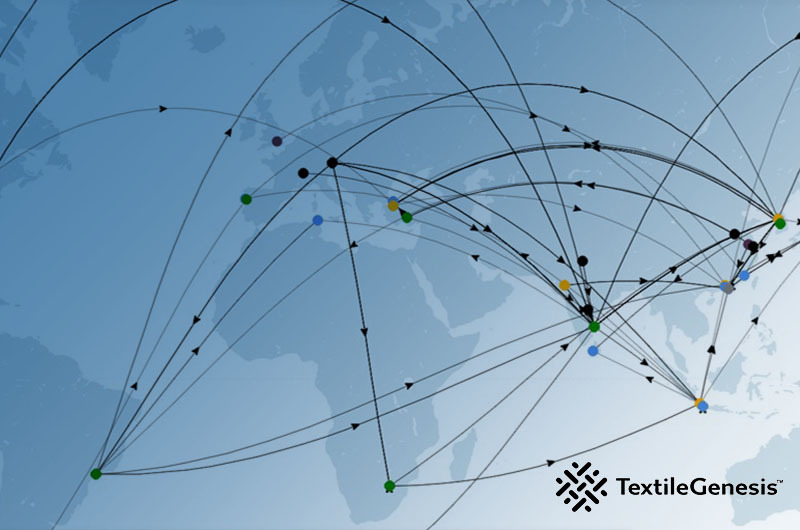Real circularity, the kind needed to make a lasting positive impact on the textile and apparel industry’s environmental footprint, requires a willingness to shatter the lens through which we view our place in the supply chain. That sounds difficult—and it can be—but as we found at Lenzing, it gets easier once you get started. When sustainability becomes a core value that drives all decisions from operations to marketing, companies discover that their employees, customers, and vendors engage and that creativity and innovation flourish in a transparent, purpose-driven culture.
Reshape a Supply Network
The traditional textile supply chain construct is rigidly linear. Companies may interact with their vendors on one side and their customers on the other but, once the truck leaves the distribution center, little thought is given to the final product several steps upstream. Now we must broaden that perspective and bring the end of the supply chain into sharp focus as a supply network. Only then we can create the responsible products that truly appeal to the sustainability-minded consumers who influence our future.
At Lenzing, our journey to circularity accelerated when we connected with upstream stakeholders and even other fiber producers. Instead of classifying a company as “vendor” or “customer” or even “competitor”, we partner with those who share our commitment to improving our mutual impact on people and planet. Our TENCEL™ Lyocell with REFIBRA™ Technology is a direct result of this fresh perspective. We saw the growing market of conscious shoppers and decided to increase our use of recycled content. Our engineers developed a revolutionary manufacturing process that upcycles cotton textiles from garment production or consumer waste to make a pulp. Then this pulp is combined with pulp from responsibly farmed trees and manufactures new TENCEL™ Lyocell fiber in our award-winning facilities. Our TENCEL™ Lyocell fibers with REFIBRA™ technology set a new standard for fibers combining circularity, transparency, and low carbon impact.
Shared Values for Effective Collaboration
For the textile and apparel industry to truly change, we must take bold steps, abandon old limitations, and join forces to create more environmentally responsible products and processes. No single company or one supply chain sector can do it alone. Most important, we all must contribute to educating consumers and helping brands and retailers benefit from our efforts.
This makes U.S. cotton a natural partner for Lenzing given our many similarities and mutual commitment to lowering environmental impacts. As botanic fibers, we share a connection to the earth and respect for its resources. We invest in transparency and, in fact, use the same blockchain technology from TextileGenesis™ to ensure the traceability from fiber to production and distribution. With TENCEL™ Lyocell manufactured at our plant in Alabama, together with U.S. cotton, we can put forth a compelling, sustainable Made in USA natural fiber proposition that appeals to conscious consumers.
Of course, collaborating can be a little harder in different situations. We might have to challenge ourselves and others. But that too gets easier as people realize that the benefits of moving forward usually offsets the growing discomfort of standing still. The beauty of advancing to a more circular textile and apparel industry is that the game is not zero sum. By doing less harm to the planet and its ecosystems, we all benefit in the long term. We enhance the resiliency and viability of the entire industry and increase the benefits for all, from consumers, brands, and retailers to the producers leading us to a better future.




